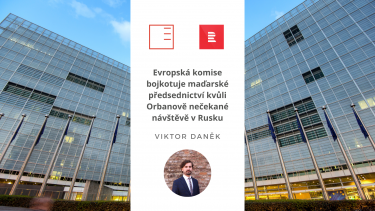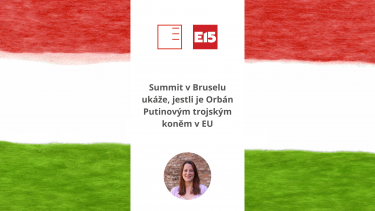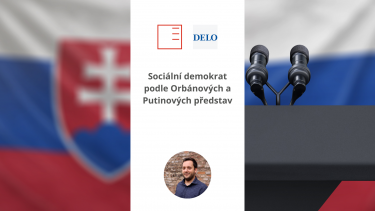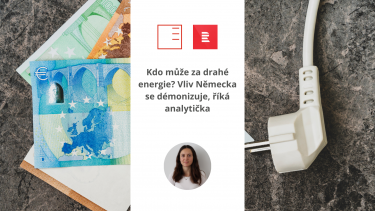STVR | Boycott of the Hungarian Presidency in Council of the EU
Most European Union states have decided to boycott the Council meeting in Budapest. This decision is a reaction to Orbán's "peace mission", during which he met with Russian President Putin, Chinese President Xi Jinping, and former US President Trump under the banner of the Hungarian presidency without any mandate from the EU. Will EU criticism slow Orbán down in his next steps? Can Hungary's presidency be revoked? Does EU foreign policy even need to be unified? The situation is commented on by Viktor Daněk, Deputy Director of EUROPEUM Institute.
Show moreČRo | The European Commission boycotts the Hungarian presidency due to Orban's unexpected visit to Russia
The European Commission has announced that, in light of developments since the beginning of the Hungarian presidency of the Council of the European Union, it plans to boycott informal ministerial meetings and send only senior officials instead of commissioners. Viktor Orbán has come under criticism for his recent trip to Russia, which he described as a peace mission aimed at ending the war in Ukraine and which he did not consult with the leaders of other EU states. This move comments Viktor Daněk, deputy director of EUROPEUM Institute for Czech Radio.
Show moreCNN Prima News | Hungary's position at the European Council
Our Executive Director Martin Vokálek was a guest on CNN Prima News, where he commented on the results of the European Council Summit. In particular, he commented on Viktor Orbán's position on the opening of accession negotiations for Ukraine.
Show more
E15 | Summit in Brussels will show if Orbán is Putin's Trojan horse in the EU
Viktor Orbán is the only EU leader who has stated in advance that he does not intend to support the opening of accession negotiations with Ukraine. The question is what his motivations are and whether he will be softened by the unblocking of EU funding for Hungary. Our senior researcher Jana Juzová commented on Orbán's position at the Summit for the daily E15.
Show moreReport | EU-Pacific Talks: Taiwan and security dimension – lessons learned, Indo-Pacific containment
During the first debate of the third edition of the EU-Pacific Talks, organised by EUROPEUM Institute for European Policy, participants engaged in a lively debate covering various aspects of Taiwan's status. They discussed the economic, military and value drivers behind Taiwan's importance, addressing concerns about China's approach and lessons from other global conflicts such as the war in Ukraine. Read what our guests debated in this report by Adam Horry.
Show moreDELO: A social democrat according to Orbán and Putin's wishes
What could Robert Fico's return to the head of Slovakian government mean for the European Union? Žiga Faktor, director of our office in Brussels, commented on the topic on Saturday for the Slovenian newspaper DELO.
Show more
NTV: North Korea reduces dependence on China by deals with Russia
Tereza Novotná, an expert from EUROPEUM, spoke about the summit between Kim Jong-un and Vladimir Putin on German NTV.
Show more
NDR: Demonstrative unity between Russia and North Korea
Vladimir Putin and Kim Jong-un hold a joint summit in Russia. Our researcher Tereza Novotna commented on the rapprochement between the leaders of the Russian Federation and North Korea for German radio NDR.
Show more
ČRo Radiožurnál: Who is to blame for expensive energy? Germany's influence is being demonised, says analyst
At an emergency meeting of EU ministers called by the Czech Republic, ministers came up with proposals on how to tackle rising energy prices in the EU. The meeting was an important demonstration of European unity, says our senior research fellow Kateřina Davidová. At the same time, Davidová points to the overestimated and often demonised impact of Germany's nuclear exit on the energy situation.
Show more
EU MONITOR: Putin's Disinformation & Misinformation Campaign
Disinformation and misinformation have been amplified in the digital age. In order to combat their increasing presence in our everyday lives, we have to first educate ourselves on what disinformation is. In this post, Jakub Ferencik looks at this question in some detail, primarily by analyzing Vladimir Putin’s usage of disinformation in politics.
Show more PDF

Staroměstské náměstí 4/1
Prague 1 - Staré Město
110 00
tel.: +420 212 246 552
email: europeum@europeum.org
https://www.europeum.org









